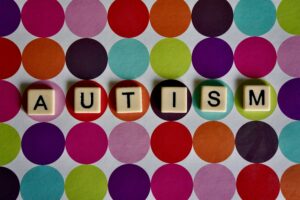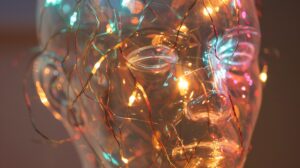Have you ever felt like life is unfolding through a dark, foggy lens? Depression isn’t just having a bad day or feeling a little down—it’s a profound and persistent condition, like wearing heavy emotional armor that drains your energy and makes even the simplest tasks feel monumental. Despite its prevalence, depression remains widely misunderstood. Let’s explore its complexity, treatment options, and the journey toward recovery.
Disclaimer
This blog post is for educational purposes only and not a substitute for professional diagnosis or treatment. For a comprehensive evaluation and personalized care, reach out to Joyspring Health and Recovery. Our experienced healthcare providers can guide you through your mental health journey.
What Really Happens in Depression?
Depression doesn’t just affect your mood—it rewires both mind and body. Imagine your brain’s chemistry going off balance, influenced by a mix of genetics, life experiences, and biological factors. It’s more than sadness; it’s a persistent state that can strip the joy from activities you once loved.
The Role of Medication in Treating Depression
Modern antidepressant medications have revolutionized how we treat depression. Think of them as scaffolding—offering support while your brain works to restore its natural balance.
Here’s what you need to know about the main types:
SSRIs (Selective Serotonin Reuptake Inhibitors)
- The most commonly prescribed antidepressants
- Examples include fluoxetine, sertraline, and escitalopram
- Work by increasing serotonin levels in your brain
- Known for fewer side effects and good safety profile
- Often the first-line treatment for depression
SNRIs (Serotonin-Norepinephrine Reuptake Inhibitors)
- Target both serotonin and norepinephrine
- Examples include venlafaxine and duloxetine
- Particularly effective for depression with anxiety
- Can also help with physical symptoms like pain
NDRIs (Norepinephrine-Dopamine Reuptake Inhibitors)
- Work differently by targeting dopamine
- May help improve focus and concentration
- Often prescribed when SSRIs haven’t worked
- Less likely to cause sexual side effects
Other Options
- Tricyclic antidepressants: Older but effective medications
- MAOIs: Reserved for treatment-resistant cases
- Atypical antidepressants: Unique mechanisms for specific symptoms
Why Medication Matters
Antidepressants can:
- Regulate sleep and appetite
- Boost energy and concentration
- Reduce feelings of hopelessness and anxiety
- Prevent relapse when taken as prescribed
- Work synergistically with therapy for better outcomes
Remember: Starting antidepressants is like planting a garden – it takes time to see results. Most people notice improvements within 4-6 weeks. Working closely with your healthcare provider ensures you find the right medication and dosage for your needs.
Spotting the Signs
Depression is like a chameleon, showing up differently in everyone, but some key signs include:
- A persistent cloud of sadness
- The disappearance of joy in formerly beloved activities
- A mind that feels wrapped in fog, making decisions feel impossible
- Physical exhaustion that sleep doesn’t fix
- Dramatic changes in appetite and sleep patterns
Picture your favorite meal losing its taste, your bed becoming a fortress you can’t leave, or your mind turning into a broken record of negative thoughts. That’s what depression can feel like.
Real Talk: Emma’s Story
Meet Emma (name changed), a successful professional who seemed to have it all but felt empty inside. Her journey from dismissing her symptoms to seeking help highlights the power of early intervention.
Initially attributing her sadness and fatigue to stress, Emma’s condition worsened until it began affecting her work and relationships. Seeking professional help, she found relief through therapy and medication. Her story reminds us that depression doesn’t discriminate—and recovery is possible.
Importance of Early Intervention
Early intervention is critical in managing depression effectively. Untreated depression can lead to complications, such as substance abuse, self-harm, and physical health issues. Seeking professional help at the onset of symptoms can prevent the condition from escalating and improve the chances of recovery. Medication combined with psychotherapy has been proven to be the most effective approach for many individuals.
Breaking Through: Comprehensive Treatment
Recovery is about more than medication. A holistic approach might include:
- Therapy: Cognitive-behavioral therapy (CBT) can help rewire negative thought patterns.
- Lifestyle Changes: Regular physical activity, a consistent sleep schedule, and mindfulness practices can improve well-being.
- Support Systems: Engaging with trusted friends or family can make a significant difference.
- Stress Management: Techniques like meditation or breathing exercises can ease the mental burden.
Raising Awareness and Reducing Stigma
Open discussions about depression can foster understanding and reduce stigma. Community programs and education can encourage individuals to seek help without fear of judgment.
Taking Action
If you’re struggling with depression, remember: seeking help is a sign of strength. At Joyspring Health and Recovery, we offer personalized evaluations and treatment plans tailored to your needs. Whether it’s medication management, therapy, or a combination, we are here to support and guide you.
A Final Note
Depression is real, but so is recovery. With the right support and treatment, you can rediscover joy and regain control over your life. You’re not alone—help is always within reach.
If you’re in crisis, help is available 24/7 through suicide prevention hotlines and crisis support services.
Remember: This information is for educational purposes only. Always consult with healthcare professionals for medical advice and treatment decisions.






I’ve thoroughly enjoyed reading these blog posts—they are helpful, enlightening, and incredibly relatable. I used to associate depression solely with having a low mood, but I now understand how it can rewire the brain and the critical importance of seeking timely professional help.